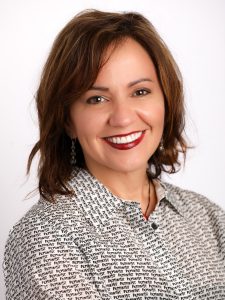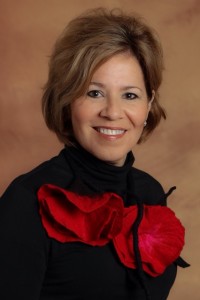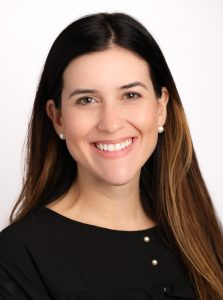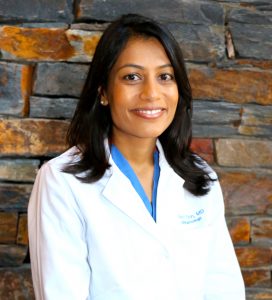What does a retina surgeon look like?
Do you look like what you do for a living? You just paused… and, are thinking about these questions because they are certainly thought provoking.
#ilooklikeasurgeon was covered by the BBC in 2015. A surgeon named Stephanie posted why are my male colleagues called “doctor” and I’m called by my first name each day? Over the past several years, #ilooklikeasurgeon and #ilooklikeanengineer have started a conversation. In August 2017, Audina Berrocal, MD, approached RetinaLink and we started outlining #ilooklikearetinasurgeon. Then, we met at AAO in New Orleans and discussed the foundation for #ilooklikearetinasurgeon with Drs. Maria Berrocal, Lejla Vajzovic, Camila Ventura and Avni Finn.
Today, at the 6th Annual Vit-Buckle Society, RetinaLink is proud to launch #ilooklikearetinasurgeon and honored to feature Audina M. Berrocal, MD, Miami, FL, Maria H. Berrocal, MD, San Juan, Puerto Rico, Lejla Vajzovic, MD, Durham, North Carolina, Camila V. Ventura, MD, Recifé, Brazil and Avni P. Finn, MD, Durham, North Carolina. Each provide their insight below on three things, why they became retina specialist, their mentor and a woman who has inspired them and lastly, what is most challenging professionally. Additionally, #isupporther and #iworkwithher are launching, too. #isupporther are male retina colleagues and peers who support women in retina. #iworkwithher includes corporate and industry representatives that recognize women in retina.
RetinaLink (RL): Why did you become a retinal specialist?
Audina (Nina) Berrocal, MD (NB): Retina surgery is the most challenging. Cases are all very different, never the same, never boring. It is the where i can be the most creative every day, every case.
Maria H. Berrocal, MD (MHB): I always found fascinating that the retina was a window to the body since one could see vascular diseases directly. Microsurgery always interested me and within Ophthalmology vitreo-retinal surgery is the most diverse, challenging and technologically advanced. My father, Jose Berrocal, MD, was the first retina specialist in Puerto Rico, and through him I had seen how the field had evolved from lengthy scleral buckles to complex vitrectomies, and the vibrancy in this evolution. As a retinal specialist one is never bored, all the surgical cases are different, and medical retina is filled with interesting pathologies and unknowns, one can laser, do injections, artfully combine treatments to suit patients’ needs and there are always new “toys” coming out as new diagnostic and therapeutic equipment are constantly being developed.
Lejla Vajzovic, MD (LV): I have been fortunate to have most inspiring mentors who are retina specialists – naturally, I steered towards that direction. Likewise – I enjoy the challenge of diagnosis retinal conditions, performing complex surgeries and “playing” with some of the most amazing technology.
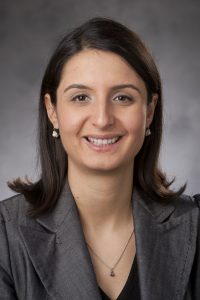
Camila V. Ventura, MD, PhD (CVV): I believe it has to do with my personality. I like that due to the retina’s complexity, it is challenging and enables me to be more creative. I also like the idea of being resolute and able to solve all kinds of complications and difficult cases. Being a retina surgeon instigates me to be strategic, a problem solver, and think outside the box.
Avni P. Finn, MD (APF): The medical and surgical diseases of the retina are not only some of the most complex and challenging cases that are encountered within ophthalmology, but there is a huge opportunity to make a potentially large impact on a patient’s quality of life through the treatment of retinal diseases. As a clinician, I was fascinated by how many systemic conditions could manifest with retinal disease and how I could impact not only the patient’s vision but also the overall health. As a scientist, the constant innovation within the field of retina – medical treatments, imaging advances, and surgical instrumentation – has kept me captivated by the field.
RL: Who has been a mentor to you and tell me about a woman who has inspired you?
NB: One of my earliest inspirations of what a women surgeon could be like was Dr. Katrinka Heher. She was my oculoplastics attending during residency. She showed me how you could really have it all, do it well and still be nice, fun and human. Katrinka to this day continues to be an inspiration…..
MHB: Three female mentors helped shape me as a retina specialist, Dr. Mary Lou Lewis was the first female retina fellow and attending at Bascom Palmer Eye Institute. She dedicated her life to macular degeneration at a time when outcomes were dismal. She treated her patients with so much empathy, understanding and kindness that they were like family to her. A truly inspiring life.
Drs. Alice McPherson and Julia Haller are also my mentors. Alice was the first female retinal specialist, at a time when women in medicine were scarce. Through hard work and grit she built a world class practice, became one of the best surgeons of her time, taught and did very relevant research. But most admirable is how she has devoted her life to bringing education to the ophthalmic community worldwide by establishing numerous philanthropic organizations, the Schepens Retina Foundation among others, and generously funding these. Her many grants given through ARVO, PAAO, AAO, Retina Society have brought knowledge to so many ophthalmologists, and good care to many remote areas.
Julia epitomizes the modern vitreoretinal surgeon. I met her when she was a fellow at Hopkins. Her vibrancy permeates everything she does and brings it to another level. She has juggled a family, a busy academic surgical practice, many research endeavors and teaching, as well as leadership roles in many societies and now a Chairmanship at Wills. She is the wonder woman who can not only do it all, but do it with grace, wit, humor and joy.
LV: My aunt is the woman who has inspired me to become a physician – her altruism, care of others and love are endless.
CVV: My female role model is my mother, Professor Liana Ventura. I look up to her since I was a child. I remember bragging about her at school saying that she was the first eye doctor in Brazil to specialize in children’s eyes. When I was old enough to see her operate, I was amazed by how fast she could suture muscles in place, how effective she was in fixing those crossed eyes, and how her patients loved her. Later, she became my professor during my Ophthalmology training, and by that time, she was such an inspiration to me that I almost chose pediatric ophthalmology as a subspecialty. I guess, specializing in Pediatric Retina has a lot to do with my admiration for her.
APF: I’ve been really lucky to train with strong women mentors in retina. They have not only inspired me but also pushed me to attain my goals, providing bottomless support along the way. Dr. Joan Miller has been an incredible inspiration and mentor to me throughout my training beginning during my residency. In her career, she not only did she contribute to modern day AMD management through her retinal research, but she has paved the way for many women and men she has supported in academia, research and retina. Now, in my fellowship I am lucky to have strong female mentors in Drs. Sharon Fekrat, Cynthia Toth and Lejla Vajzovic. There is no shortage of support, role modeling and awe-inspiring patient care when I am around them. I am inspired by them daily.
RL: What do you find most challenging professionally?
NB: It continues to be balance. Finding “balance” is a challenge.
MHB: The practicing part is the fun part, interacting with patients, doing surgery, befriending them through the years. What is challenging and unpleasant is all the ever-increasing bureaucracy associated with the practice of medicine: pre-approvals, audits, governmental requirements and submissions, EMR requirements etc.
LV: For me, it has been balancing medicine and motherhood – pursing my career goals while still being able to take off work to chaperone a field trip. It has not been easy and I continue to work on it.
CVV: Nowadays, the most challenging professional situation I face is managing my time between clinic, OR, and research. Over the past two years, I got myself more involved with research, which is time consuming and effort demanding. Despite the fact that I really enjoy doing research and that it brings enormous professional satisfaction to me, I find it challenging to conciliate with my other activities.
APF: As a surgeon, two challenges are knowing when not to operate and how to deal with your failures. The most important lesson I’ve learned in fellowship is that every surgeon has failures but, the best surgeons know how to expertly manage their complications. At the same time, my mentors have taught me the importance of knowing when not to operate. This can be a very difficult decision and conversation but some of the happiest patients may be those who you decided not to operate on.

